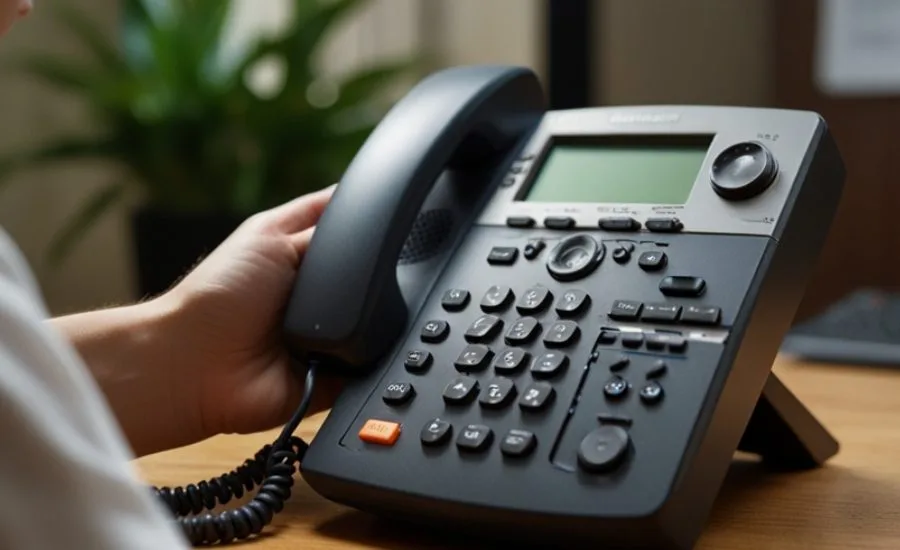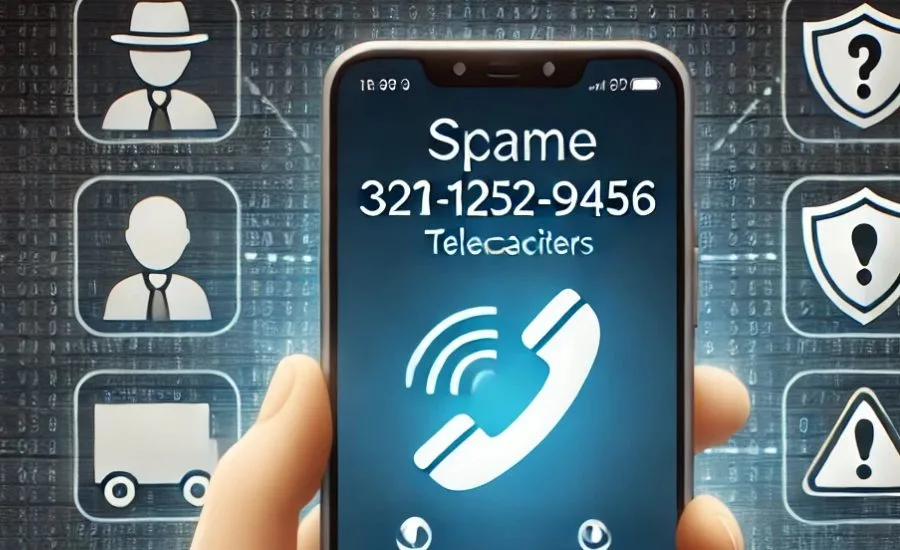209-379-4351 Is It a Scam? Signs, Protection Tips & Actions
In an era where communication has become as simple as a click of a button, the prevalence of phone scams has dramatically increased. One such number that has garnered attention is 209-379-4351. Many individuals have reported receiving calls from this number, prompting questions regarding its legitimacy. Is 209-379-4351 Is It a Scam? In this article, we will explore the signs that may indicate a scam, offer protection tips, and outline actions you can take if you suspect you have been targeted.
Understanding the Nature of Phone Scams
Phone scams can take many forms, from unsolicited calls claiming you’ve won a prize to urgent requests for personal information. The scammers behind these calls often use a variety of tactics to instill fear or a sense of urgency in their targets, thereby manipulating them into providing sensitive information or making immediate payments. According to the Federal Trade Commission (FTC), the rise of technology and the internet has facilitated the spread of these scams, allowing fraudsters to reach a broader audience with minimal effort.
The Implications of Phone Scams
The implications of falling victim to phone scams can be dire. Aside from the immediate financial loss, victims may face long-term consequences such as identity theft, compromised credit scores, and emotional distress. Furthermore, the financial impact of these scams extends beyond the individual; it affects the economy at large as resources are diverted from legitimate businesses and services.
As individuals increasingly rely on their mobile phones for various aspects of daily life, understanding the tactics employed by scammers becomes essential. Recognizing red flags and knowing how to respond can significantly reduce the risk of falling victim to these fraudulent activities.

Signs That 209-379-4351 May Be a Scam
When receiving a call from an unfamiliar number like 209-379-4351 Is It a Scam, there are specific signs that may indicate the call is fraudulent. Awareness of these signs can empower individuals to take necessary precautions before engaging with the caller.
1. Caller ID and Anonymity
One of the first indicators of a potential scam is the caller ID. If 209-379-4351 appears as a private or unknown number, this should raise suspicion. Scammers often use spoofing technology to disguise their true number, making it appear as if the call is coming from a legitimate source. If the caller is reluctant to provide their name or the purpose of the call, it’s a significant red flag.
2. Unsolicited Offers or Requests
If you receive a call from 209-379-4351 offering unsolicited services, prizes, or requests for personal information, it may be a scam. Legitimate businesses typically do not make unsolicited calls to potential customers. This tactic is commonly used in phishing scams, where the goal is to extract sensitive information, such as Social Security numbers or bank details, from unsuspecting individuals.
3. High-Pressure Tactics
Scammers often employ high-pressure tactics to create a sense of urgency. Phrases such as “Act now!” or “Limited time offer!” are frequently used to push individuals into making hasty decisions. If the caller insists on immediate action or threatens negative consequences for non-compliance, it is likely a scam. Legitimate businesses will provide ample time for individuals to make informed decisions.
4. Lack of Verifiable Information
If the caller from 209-379-4351 provides information that is not easily verifiable, it may be a sign of fraud. Legitimate organizations will have a verifiable online presence, including official websites and contact information. If the caller cannot provide credible references or insists on handling matters over the phone without verification, it is advisable to terminate the call.
5. Requests for Payment via Unusual Methods
Be wary if the caller requests payment through unconventional methods, such as gift cards, wire transfers, or cryptocurrency. These payment methods are often favored by scammers because they are difficult to trace and recover. Legitimate businesses typically accept credit or debit card payments and will not pressure customers to pay in any specific manner.
6. Generic Greetings
Another common trait of scam calls is the use of generic greetings. Scammers often do not have your personal information, so they may address you with vague terms such as “Dear customer” or “Valued client.” A legitimate company will address you by name and may even provide specific details about their services or your account.
Summary of Red Flags
- Caller ID appears as private or unknown.
- Unsolicited offers or requests for personal information.
- High-pressure tactics demanding immediate action.
- Lack of verifiable information or official references.
- Requests for payment through unusual methods.
- Use of generic greetings instead of your name.
Recognizing these signs can help you differentiate between a legitimate call and a potential scam, thus protecting yourself from fraud.

Protection Tips Against Scams
To safeguard yourself from phone scams like those potentially associated with 209-379-4351 Is It a Scam, it is crucial to implement a variety of protective measures. Here are some effective strategies to consider:
1. Utilize Call Blocking Features
Most smartphones come equipped with call-blocking features that allow users to prevent unwanted calls. Familiarize yourself with your device’s settings and enable call blocking for specific numbers. Additionally, consider using third-party apps designed to identify and block potential scam calls. These apps analyze incoming calls and can alert you if the number is associated with reported scams.
2. Register with the National Do Not Call Registry
Registering your phone number with the National Do Not Call Registry can help reduce unsolicited calls. This registry is maintained by the Federal Trade Commission and allows individuals to opt out of telemarketing calls. While it does not eliminate all unwanted calls, it can significantly decrease the volume of telemarketing communications you receive.
3. Stay Informed About Common Scams
Keeping abreast of current scams can provide valuable context for assessing incoming calls. The FTC and various consumer protection agencies regularly publish information about prevalent scams. By staying informed, you can better recognize when a call may be fraudulent and take appropriate action.
4. Verify Caller Identity
If you receive a call from 209-379-4351 and the caller claims to be from a legitimate organization, take the time to verify their identity. Hang up and independently look up the organization’s contact information. Call them directly using the number provided on their official website. This extra step can prevent you from disclosing sensitive information to a potential scammer.
5. Educate Family and Friends
Scammers often target individuals of all ages, but certain demographics, such as the elderly, may be more vulnerable. Educating your family and friends about the signs of phone scams and the necessary precautions can create a more informed community. Sharing knowledge can help others avoid falling victim to similar scams.
6. Trust Your Instincts
If something feels off about a call, trust your instincts. It is better to err on the side of caution than to engage with a potentially fraudulent caller. Do not hesitate to hang up if you feel uncomfortable or suspect a scam. Remember that legitimate businesses will respect your decision to discontinue the conversation.
7. Report Suspicious Calls
If you suspect that 209-379-4351 or any other number is involved in fraudulent activity, report it to the appropriate authorities. You can file a complaint with the FTC or your local consumer protection agency. Reporting these calls helps authorities track and address fraudulent activities, potentially protecting others from similar scams.
Actions to Take If You’ve Been Targeted
If you have already engaged with 209-379-4351 Is It a Scam and suspect that you have been targeted by a scam, it is vital to take prompt action to mitigate any potential damage. Here are steps to consider:
1. Cease Communication
Immediately stop any communication with the caller. Do not provide any additional personal information, and do not agree to any requests for payment or services. Recognizing the situation for what it is and terminating the conversation is the first step toward protecting yourself.
2. Monitor Financial Accounts
Regularly monitor your bank and credit card statements for any unauthorized transactions. If you notice any suspicious activity, report it to your financial institution immediately. Consider placing fraud alerts on your credit reports to alert creditors to take extra steps to verify your identity before extending credit.
3. Change Passwords
If you provided any personal information, such as your social security number or online account passwords, take immediate action to change those passwords. Choose strong, unique passwords and consider enabling two-factor authentication on your accounts for added security.
4. Consider a Credit Freeze
If you suspect identity theft, consider placing a credit freeze on your credit reports. A credit freeze prevents potential creditors from accessing your credit report, making it difficult for scammers to open new accounts in your name. You will need to contact each of the three major credit bureaus—Equifax, Experian, and TransUnion—to place a freeze.
5. File a Report
Report the incident to the FTC and your local law enforcement agency. Providing details about the call and any information you may have shared can aid in the investigation of the scam. Filing a report can also help protect others from becoming victims of the same scam.
6. Seek Support
If you feel overwhelmed or distressed after receiving a suspicious call, consider reaching out to trusted friends or family members for support. Discussing your experience can provide emotional relief and allow you to gain insights into how to manage the situation.
Conclusion:
In a world increasingly connected by technology, staying vigilant against potential scams is more important than ever. While receiving calls from numbers like 209-379-4351 Is It a Scam can be alarming, understanding the signs of a scam and taking proactive measures can protect you and your personal information. By employing strategies such as utilizing call-blocking features, staying informed, and trusting your instincts, you can minimize your risk of falling victim to fraud.
If you suspect that you have encountered a scam, take swift action to protect your financial well-being and report any suspicious activity. The more informed and vigilant we become as individuals, the more we can collectively combat the issue of phone scams and protect our communities from fraudulent activities. Remember, the best defense against scams is knowledge and preparedness, empowering you to navigate the digital landscape with confidence.
Explore more latest news With SumoSearch
FAQs:
The phone number 209-379-4351 has been reported by many individuals as potentially being involved in scam calls. Commonly, such numbers may be used by scammers to solicit personal information or offer unsolicited services. It is crucial to exercise caution when receiving calls from unfamiliar numbers.
Look for several warning signs: unsolicited offers, high-pressure tactics urging immediate action, generic greetings, and requests for unusual payment methods (like gift cards). If the caller cannot verify their identity or provide legitimate information, it may indicate a scam.
If you receive a call from this number, it is advisable to hang up and not engage with the caller. If you feel uncertain, you can independently verify the organization’s legitimacy by looking up their official contact information online.
Yes, you can block calls from specific numbers using your smartphone’s call-blocking feature. Additionally, there are apps available that can help identify and block known scam numbers.
If you believe you have shared personal information with a scam caller, immediately stop any communication with them. Monitor your financial accounts for unauthorized transactions, change passwords, consider placing a credit freeze, and report the incident to the FTC and local authorities.
Yes, you can report scam calls to the Federal Trade Commission (FTC) through their website or by calling their helpline. Additionally, your local consumer protection agency can assist in reporting scams and providing guidance.





